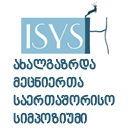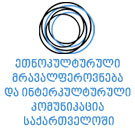წიგნები
1.
იდენტობის ნარატივების ფორმირება საქართველოში მე-19-20 საუკუნეების მიჯნაზე. იდენტობის კონსტრუირება ფრანკოფონურ სივრცეში. აღმოსავლეთ ევროპა და აფრიკა. რაბათი, 2015, გვ. 271-282 (ფრანგულ ენაზე) (Formation du narratif d’identité en Géorgie à la fin du XIXe siècle et au début du XXe siècle. Les Constructions Identitaires dans les Espaces Francophones D’Europe Orientale et D’afrique. Publications de l’Institut des Etudes Africaines, Rabat, 2015).
2.
ნაციონალიზმის ეპოქა და იდენტობის პრობლემის აქტუალიზაცია: ზოგადი კანონზომიერებანი და ლოკალური თავისებურებები. იდენტობის ნარატივების ფორმირების საფუძვლები საქართველოში. იდენტობის ნარატივები საქართველოში: მრავალეთნიკური ქართველი ერის სათავეებთან (1860-1918). თბილისი, 2014, გვ. 12-52.
სახელმძღვანელოები
1.
მრავალეთნიკური და მრავალკულტურული საქართველო. სასწავლო კურსის სახელმძღვანელო (ქ. კაკიტელაშვილთან, დ. მალაზონიასთან, ლ. ახალაძესა და სხვ. ერთად). თბილისი, თსუ გამომც., 2015. 131 გვ.
2.
იდენტობის ფორმირება მულტიკულტურულ გარემოში. საქართველო. სასწავლო კურსის სახელმძღვანელო (ქ. კაკიტელაშვილთან და ს. არსენიშვილთან ერთად). თბილისი, თსუ გამომც., 2015. 281 გვ.
სტატიები
1.
„ბრძოლა ისტორიისათვის“ პოსტსაბჭოთა საქართველოში. ტექსტზე ორიენტირებული კვლევები (პროფესორ ვიოლა ფურცელაძის 85 წლის იუბილისადმი მიძღვნილი სტატიების კრებული). თსუ გამომც., თბილისი, 2014, გვ. 444-452.
2.
Ethnic and Religious Factors in the Process of Cultural Self-Identification of Georgians (Historical Aspect). Revista Istorica, Institute of History "N.Iorga", Bucharest, Romania, 2013, Vol. XXIV, # 5-6, p. 427-438.
3.
The De-Sovietisation and Nationalisation of History in Post-Soviet Georgia. Myths and Conflicts in the South Caucasus. Volume 1. Instrumentalisation of Historical Narratives. International Alert, 2013, p. 72-91.
4.
The Images of Self and Neighbors in Georgian History Textbooks: Representation of the Events of the Beginning of the 20th Century in the Post-Soviet Period. // The South Caucasus and Turkey: History Lessons of the 20th Century. Heinrich Böll Foundation South Caucasus, 2012, pp. 65-93.
5.
The Georgian Historical Narrative: From pre-Soviet to post-Soviet Nationalism. Dynamics of Asymmetric Conflict: Pathways toward terrorism and genocide. Vol.5, No 2, 2012, Routledge, Tylor & Francis, p.107-115. ინტერნეტვერსია იხილეთ ბმულზე.
6.
Christianity and Islam in Modern Georgia: the Experience, Challenges, and Search for Responses. World Religions in the Context of the Contemporary Culture: New Perspectives of Dialogue and Mutual Understanding. St. Petersburg, 2011, p. 105-114.
7.
Образы себя и соседей в учебниках истории Грузии: репрезентация событий начала ХХ века в постсоветский период. Уроки Истории ХХ века: «Мы» и «Наши Соседи» (Турция и Южный Кавказ). Heinrich Boеll Stiftung, Tbilisi, 2011, p. 61-81.
8.
Inter-University Cooperation: Towards Overcoming Conflicting Memories in Post-Soviet Georgia. Eurasian Inter-university Dialogues on Cooperation for Higher Education Development. Ed. by P.J.Wells and E.Gilder. UNESCO CEPES, Bucharest, 2011, p. 63-70.
9.
The Regime of Historicity and the Discourse of Identity in Georgia (Georgian master narrative from its formation until the 1950s). Civilization Researches, # 8, Tbilisi State University Press, Tbilisi, 2010, p.45-52.
10.
Narrative of the United Caucasus: Political or Historical Project? Conflict and Transformation: State Rhetoric, Search for Identity and Citizenship in the South Caucasus. Center for the Study of Caucasus and Black Sea Region. Tbilisi, University of Georgia Press, 2010, p. 34-42.
11.
1918-1921 წლების რეპრეზენტაციის დინამიკა საქართველოს ისტორიის სახელმძღვანელოებში. ქართული წყაროთმცოდნეობა, XII, თბილისი, 2010, გვ.232-240 (ქ. კაკიტელაშვილის თანაავტორობით).
12.
Overcoming conflicting histories – the way towards cooperation. ICCEES VIII World Congress “Prospects for Wider Cooperation”. Abstracts. E-print, Stockholm, 2010, p. 208.
13.
For the problems of intercultural and interreligious dialogue in contemporary Georgia. Culture dialogue and civil consciousness. Caucasus Institute for Peace, Democracy and Development. Tbilisi, 2010, p. 98-104.
14.
Попытки преодоления последствий «войн памяти» или их разжигание? // Многоликая Клио: бои за историю на постсоветском пространстве. Georg-Eckert-Institut for Internationale Schulbuchforschung. Braunschweig, 2010, p.125-134 (ქ.კაკიტელაშვილთან ერთად).
15.
Нарратив единого Кавказа: попытки преодоления конфликтной памяти. // Многоликая Клио: бои за историю на постсоветском пространстве. Georg-Eckert-Institut for Internationale Schulbuchforschung. Braunschweig, 2010, p.99-112.



















